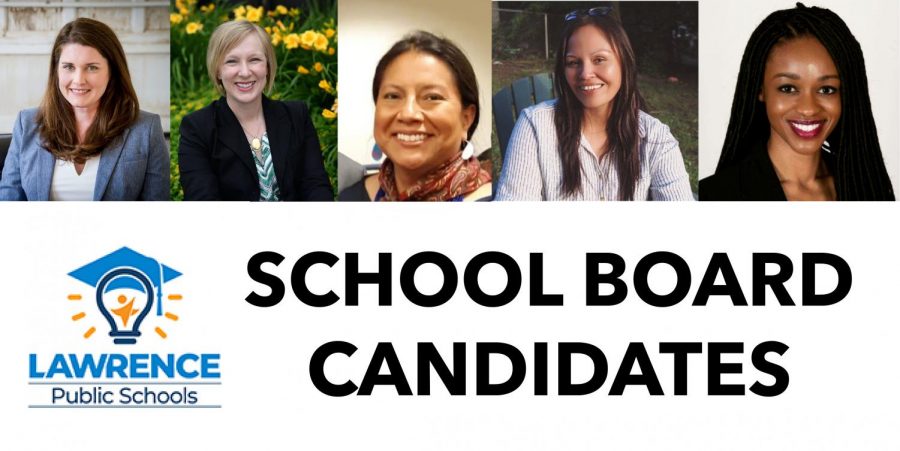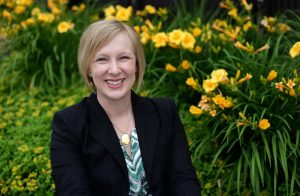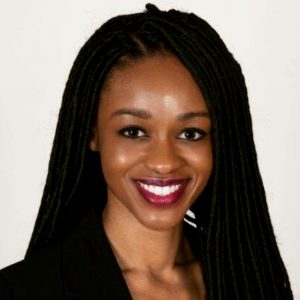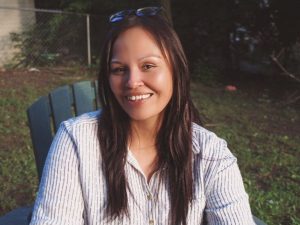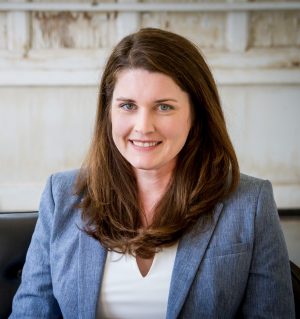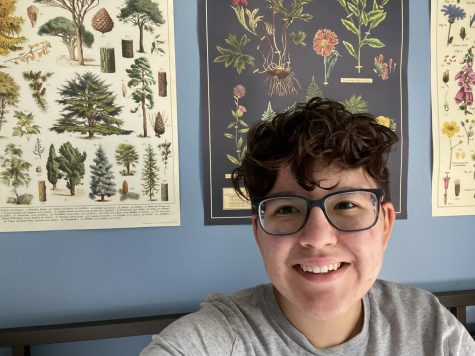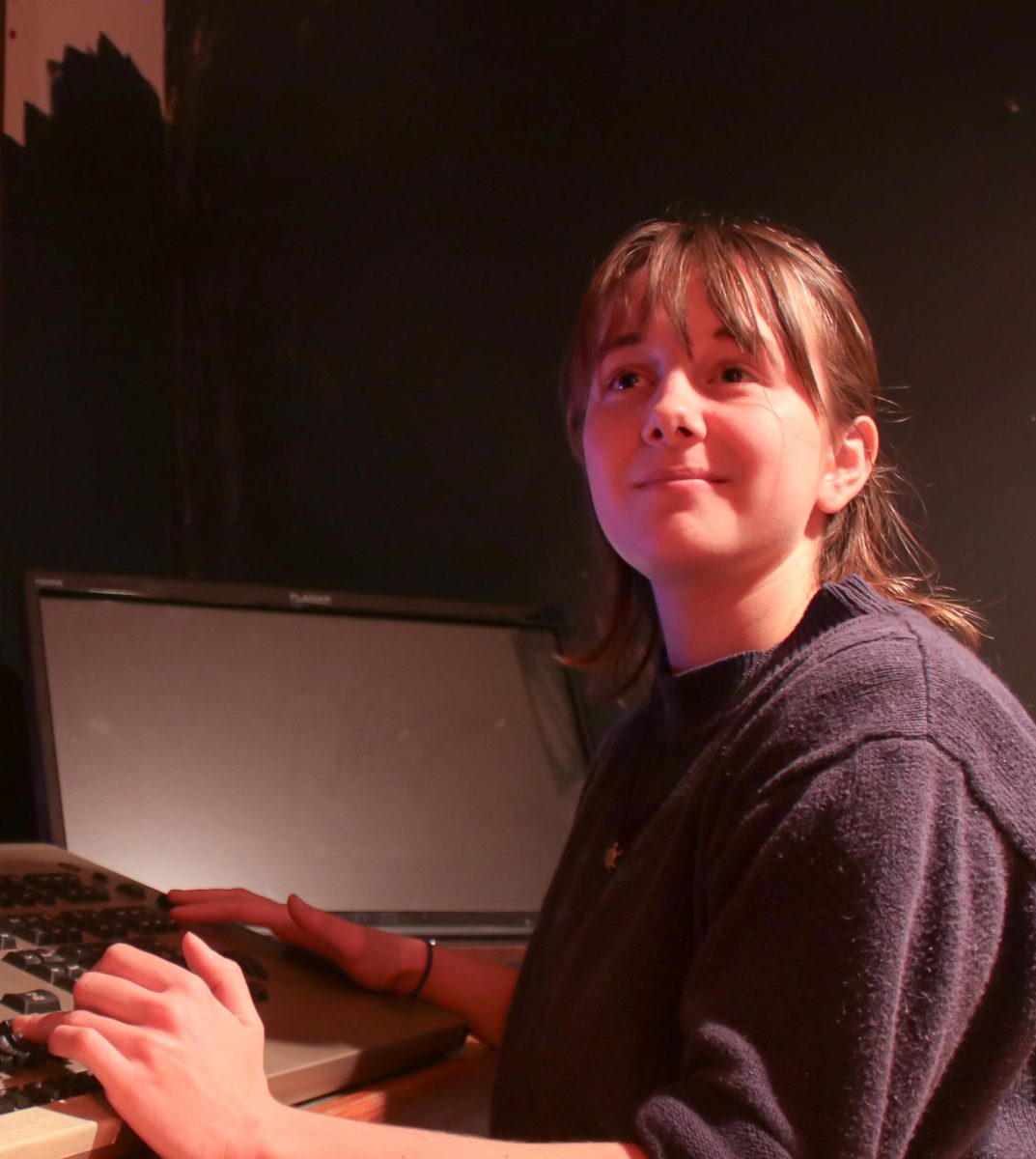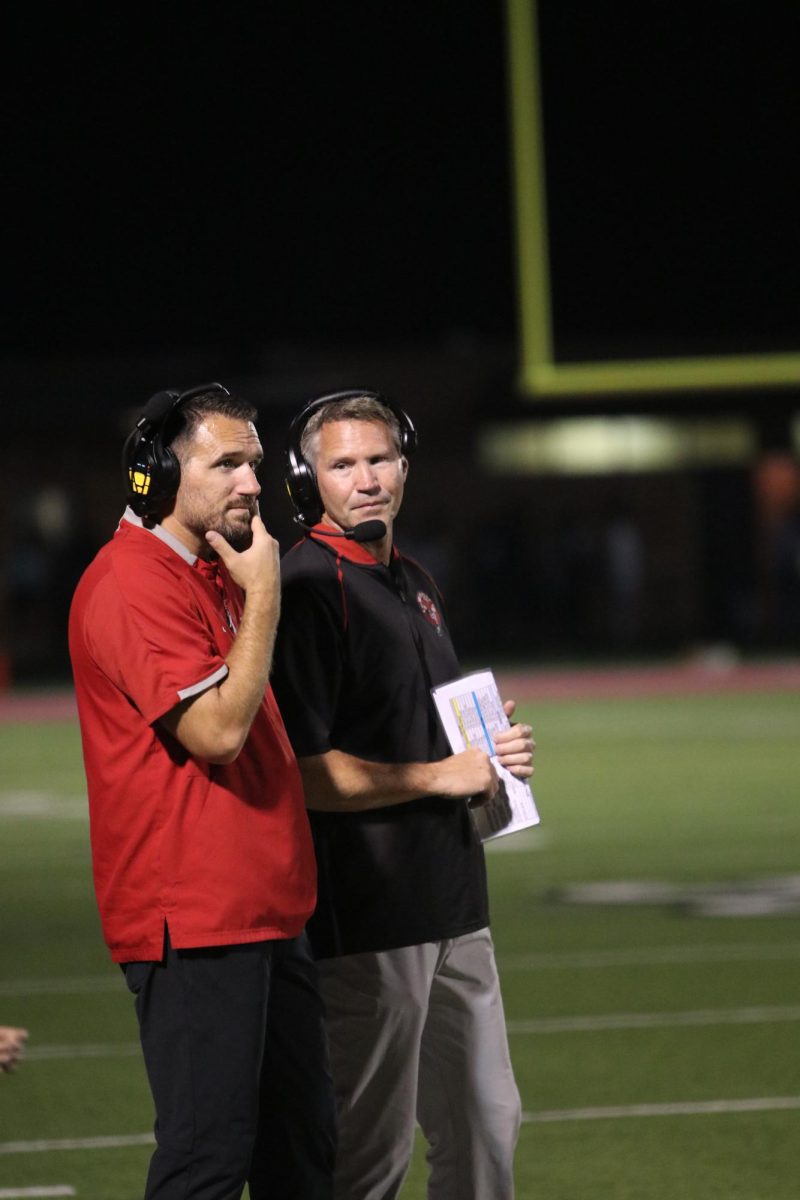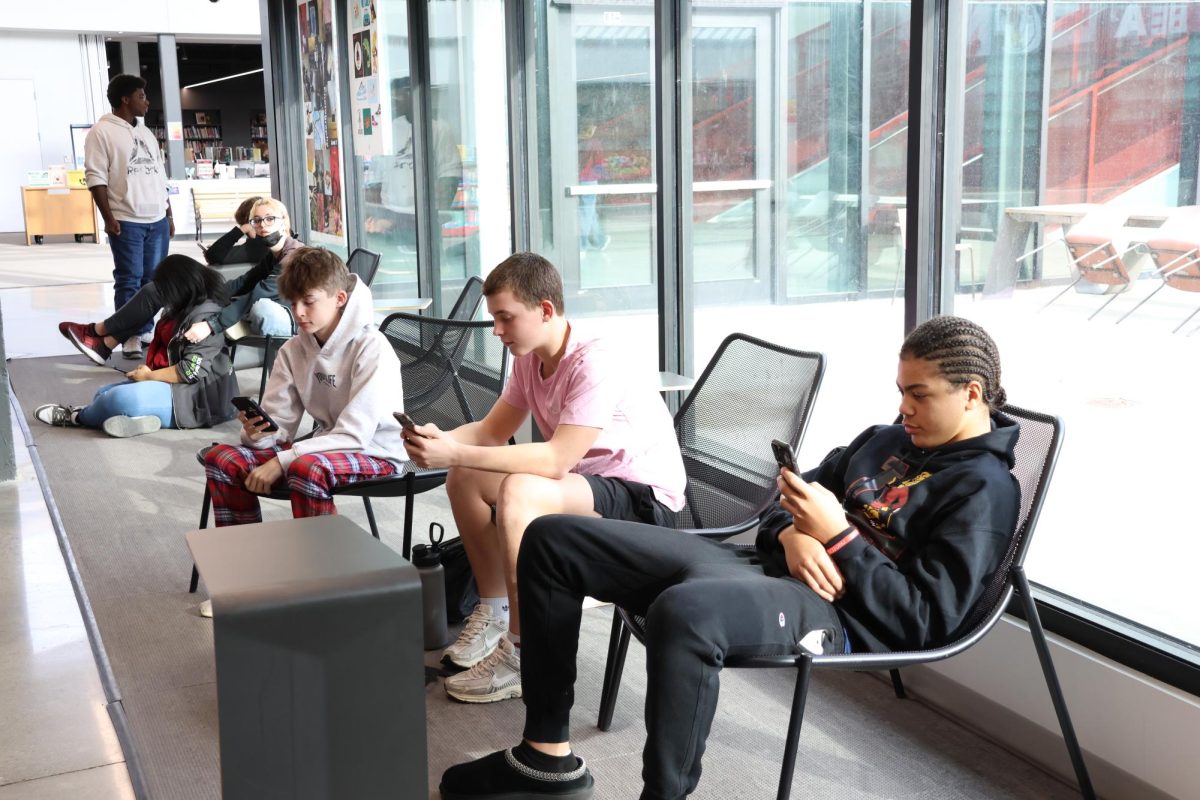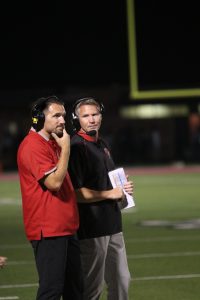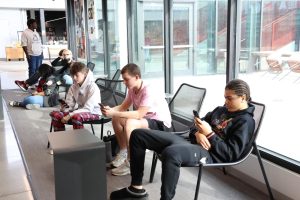School Board candidates answer pressing questions
October 14, 2019
On November 5th, voters will choose from Shannon Kimball, Carole Cadue-Blackwood, Erica Hill, Paula Smith, and Thea Perry to fill the four open school board seats in the USD497 district.
The Budget asked each of them a series of questions ranging from mental health to making the district greener. Their responses are below.
What motivated you to run for School Board?
I want our community to proud of our schools, and to trust that the district is putting forward its best efforts to ensure that our children grow and thrive as learners, so that they are well-prepared for their futures.
During the next four years on the board, I will work to:
• Ensure our strategic plan is implemented, and hold our district accountable to meet the goals in the plan around equity, student achievement and staff recruitment and retention
• Work to craft a plan to address some of the biggest concerns I hear from staff and the community around teacher and classified staff retention and compensation
• Continue my work on our facilities upgrades and successfully completing the $175mm+ in bond projects that our community has approved over the past 6 years
• Continue my advocacy and policy work at the local, state, and national levels in support of equity, adequate funding, and special education needs, among other areas
We have made progress in many areas during my tenure on the board – particularly in our offerings to support college and career readiness, and in meeting the facilities needs of our district—but I still see much work to do and want to have a seat at the board table to ensure that our work in these priority areas—particularly around student achievement, equity, facilities, and implementation of the strategic plan—moves forward in a direction that best supports the needs of our students, our staff, our families, and our community.
If elected, how will you improve communication between the district and students/staff?
I have emphasized good communication practices throughout my 8 years on the board. I voted to support our communications department by adding staff and encouraging expanded use of social media and other platforms to share information about the district. I also voted to approve switching the district from Skyward to PowerSchool, a switch that, when fully and successfully implemented, will allow expanded communication abilities between students, staff, and home. I will continue to engage students, staff, families, and the community around education issues through my advocacy work as a board member and as statewide president of the Kansas Association of School Boards. Finally, I will hold the district accountable to successful implementation of our strategic plan, which includes an emphasis on engaging students and the community in the district’s work.
How will you recognize and take a stand on vaping and drug use in high schools?
Vaping has become an epidemic among youth across the nation, and it is definitely a crisis in our high schools. I have called on the City Commission to take up the Tobacco 21 proposal again as soon as possible. A recent article in the paper about the prevalence of vaping in our high schools reconfirms for me that this is a crisis happening right in front of us and not being adequately addressed from a public health perspective. Our district is implementing a plan to address this in our schools, which incorporates recommendations and best practices that have recently been developed by the State Board of Education’s vaping task force. Also, I will be advocating in support of legislation this upcoming session in Topeka to raise the statewide age for purchase of nicotine and tobacco products to 21.
As for other substance use/abuse, I believe we have to take similar steps to recognize the problem in our schools, engage students and staff in ways to support students in making healthy choices and staying drug, nicotine, alcohol, and tobacco-free. I have worked on district policy regarding these issues, and will continue to look for ways that as a board member I can support our staff and students in facing these challenges.
What is your plan to increase student support in the coming years?
As our finances continue to improve, and funding allows us to expand staff in student support, I would like for the district to hire additional counselors, social workers, and staff to support our students in creating individualized learning plans and in meeting students’ social, emotional, and academic needs.
What ideas do you have for recognizing and supporting mental health for students?
I have been a steadfast supporter during my eight years on the board of the district’s partnership with Bert Nash and the WRAP program. I believe it is an essential component of the services we must provide, and expand, to support students’ mental health needs. If reelected, I will continue to advocate for students’ mental health and other social/emotional needs through expansion of services, supports, and building social and emotional learning into our curriculum. I am pleased that our district has been collaborating the past year and a half with other districts in Douglas County to find additional ways that we can meet these needs.
How will you make the district greener and more sustainable?
We have undertaken numerous initiatives during my years on the board to increase sustainable practices across the district, all of which I have supported. Some of these include facilities upgrades made through our bond issues and capital improvement plans, making our facilities more energy efficient through HVAC, lighting, and other mechanical systems upgrades. We have greatly expanded our farm-to-school programming, creating school gardens at numerous schools, incorporating this work into the curriculum, and expanding use of fresh, locally sourced produce in our food service programs. I am supportive of these, and other initiatives, to continue improving our district’s sustainable practices.
What is your plan to mend the inequity between Lawrence High and Free State?
My work on the district’s Facilities Planning committee, and the two bond issues passed in 2013 and 2017, has focused on ensuring that our two high schools have adequate, equitable, high-quality learning spaces. In addition to addressing these issues through my facilities work, I am focused on holding our district accountable to the academic and other improvement goals in our strategic plan, and to institutionalizing our equity work, all of which will address equity in meeting the academic, social/emotional, and other needs of students at Lawrence High.
What motivated you to run for School Board?
I want to give back to the institutions that have helped me and my family. I attended Lawrence public school K-12, Haskell Indian Nations University and hold two degrees from the University of Kansas. I hope to use to my skills as a social worker to help improve outcomes for our students and strengthen our community. I also saw a great need to add my perspective as a woman of color and to add my perspective of what it’s like to be part of the vulnerable community. I would like a seat at the table to balance out the voices of representation for Lawrence public schools. I am passionate about the implementation of the district’s five-year strategic plan. The plan calls for building a stronger community where everyone can feel like they belong. I look forward to promoting inclusion, diversity and culture. I am excited about social emotional curriculum being developed. Greater social and emotional competence can increase the likelihood of graduation, college and career readiness, positive family and work relationships, improved mental health, civic engagement and decrease negative outcomes.
If elected, how will you improve communication between the district and students/staff?
Improving communication between the district and students/staff should be a top priority. The students have been great about voicing their opinions to the staff. I would encourage the students to share their opinion with the administrators. Dr. Johnson, “Mama J,” has been overwhelming accessible to parents and students. She makes herself visible to the students and staff. Staff members should also encourage students whom are uncomfortable with sharing their opinions that they can go to a “trusted adult’” or Link Crew member to help them. Everyone should feel connected and as if they belong. Every voice is important. Students are our greatest investment and consumers. We want to hear from you.
How will you recognize and take a stand on vaping and drug use in high schools?
Vaping is an epidemic nationwide. Rhode Island, Michigan and New York have banned most flavored vapes. Our district has a critical role to protect our youth from the long-term ramifications of vaping. More and more data comes in about the number of people with lung illness associated with vaping according to the Centers for Disease Control and Prevention last week. Twenty-two deaths have been confirmed in 19 states. We need to do more to protect our children. Olathe, Kansas was one of the first in the United States to sue Juul. We need to look to Olathe to see what they are doing to protect their children.
What is your plan to increase student support in the coming years?
I would be in favor or hiring more counselors and bringing in more community partners and mentors. It would be advantageous for the students if the school could start a “career series” of speakers to talk to students about career and education and job requirements. Students need to see as many “real world” options and role models as possible. Students going to a two-year or certification program are just as valuable as the student who plans on attending a four-year institution. Counselors need to be able to help students identify and explore career interests and opportunities.
What ideas do you have for recognizing and supporting mental health for students?
My background is in clinical social work and I am a long-time volunteer for the Willow Domestic Violence Center. I am in favor of promoting mental health in all of our schools. The 2018 Douglas County Health Equity Report highlighted the socioeconomic and health disparities that exist within our community. I hope to use my knowledge as a social worker to close these gaps. I would envision a partnership with local non-profits and the health department to promote mental health first-aid for our students. Such an initiative would be in keeping with the five-year strategic plan that promotes social-emotional character development (SECD). SECD addresses safe and drug-free schools, service learning, emotional literacy, bullying and violence prevention, the embracing of diversity and culture. These are great life skills that can decrease negative outcomes.
How will you make the district greener and more sustainable?
I recently spoke at the Climate Summit in South Park. We have three universities in Douglas County, Baker University, Haskell Indian Nations University and the University of Kansas. Each school has great environmental studies programs. We also enjoy a great partnership with Peaslee Tech. I proposed that the schools could strengthen their collaboration efforts with Lawrence public schools to study and combat climate change at each school.
What is your plan to mend the inequity between Lawrence High and Free State?
There are significant disparities and correlations based on those who receive free and/or reduced lunches and test scores. It is imperative to focus resources where they are needed. It’s also important to focus on students who may be failing in on area such as English and excelling in mathematics. We need to establish protocol for such students to support and engage these students, so they don’t fall through the cracks.
What motivated you to run for School Board?
Being a school board member is a personal investment – I have one child in our schools and one that will enter our schools in a few years. Another reason why I’m running for school board is because I want to be a part of the solution to help all scholars achieve. I believe education is a fundamental human right – not a privilege. Every scholar has the right to reach their full potential academically, socially, and emotionally. As a board member, I will commit to:
• Addressing the achievement gap.
• Strengthening community partnerships; and
• Improving post-graduation success for all scholars.
If elected, how will you improve communication between the district and students/staff?
Some key responsibilities of school board members:
• Establish goals and objectives
• Adopt and monitor the budget
• Create and develop policies
• School board members should also be transparent and held publicly accountable, and
• Represent public education serving as a liaison between the school district and the community.
Ensuring a consistent line and method of communication is important. School board members should be transparent. Engaging parents, students, employees, and other community members in important discussions, especially regarding policy, is important.
How will you recognize and take a stand on vaping and drug use in high schools?
I’m already taking a stand against vaping. I’ve facilitated an introduction to connect the school district to a national speaker that addresses the consequences of vaping. Drug use can be considered a behavioral health issue, so increasing behavioral health resources will help, too. Studies show that students that have mentors are less likely to be involved in risky behavior such as drug use, so having more mentors through community partnerships will be key.
What is your plan to increase student support in the coming years?
If this question is referring to academic, social and emotional support, then these areas are addressed in the new board-approved strategic plan. I support our community’s plan for school progress, which is to have:
1. Cohesive curriculum, using multicultural resources so, students from marginalized demographics see themselves positively reflected in instructional resources.
2. Student-centered learning
3. Safe and Supportive schools that encourages positive student behaviors.
4. Develop effective and committed employees, which will create positive work environment that attracts high-quality candidates.
5. Make data informed decisions.
School board members should listen, question, advocate, learn and support the work the school is doing – ultimately holding the superintendent accountable for student outcomes.
What ideas do you have for recognizing and supporting mental health for students?
Enhance mental and behavioral services for students and encourage health lifestyles.
Every scholar should have at least one adult outside of their household that they connect with. This is why strengthen community partnerships is key component to my campaign. All scholars should feel and know that they belong in our school district. Having mentors – at all grade levels – is key to a student’s academic success and emotional health, and will enhance their social connection to their community.
Preparing our future leaders is a community-wide issue, not the sole responsibility of the school district. It will take everyone working together to make the biggest impact. As a community member, I’ve already taken accountability for this through my work at LMH in partnership with the school district, by creating the Leadership Academy. As a board member I will continue this work in a greater capacity.
How will you make the district greener and more sustainable?
One way to do this is through policy and changing the culture:
1. Encourage students and teachers to walk to school, if it’s close. Or, car pool.
2. Cut down on the paper you use by keeping electronic copies instead of printing things out?
3. Eating green/local
4. Recycle
5. Be energy efficient
6. Use natural, eco-friendly cleaning products.
What is your plan to mend the inequity between Lawrence High and Free State?
As a board member, I will look at matters through a lens of equity – I understand that access is not the same as availability. Representation is more than being present. As leaders, we need to ask ourselves who is at the table AND empowered to contribute? Who isn’t? Who benefits? Who doesn’t?
If there’s inequity of academic resources, including but not limited to: school funding, qualified and experienced teachers, books, and technologies, between the two high schools then these disparities should be prioritized and addressed. One way to address inequity is through board approved policies designed to reduce inequities between the schools. I’d need to see the data in order to make an informed, educated plan.
To make an informed decision, I’d like to see the data that shows disparities in funding, spending, extracurricular activities, quality of teachers, scholarships awarded to students, discipline, etc.
What motivated you to run for School Board?
I am motivated to run for school board because I believe there is nothing more important than the care and education of our children. I am a long-time resident and raised five kids in our school district. Three have graduated from Lawrence High School and two are currently enrolled. Serving as the Chair of the Native American Student Services Advisory Committee and a member of the Equity Advisory Committee added to my excitement and enthusiasm for the direction our district is headed.
If elected, how will you improve communication between the district and students/staff?
I will improve communication between district and students/staff by expansion of student support staff, such as social workers, mentors, and parent facilitators who can communicate directly with students and families.
How will you recognize and take a stand on vaping and drug use in high schools?
Educate, raise awareness and outreach campaigns on the risks of vaping and drug use and support policies that curb the use of vaping.
What is your plan to increase student support in the coming years?
Support high quality school-integrated mentoring program within the district. Youth mentoring is a proven evidence based intervention and prevention strategy to the boarder youth development and education. It is important that to build strong student-teacher relationships.
What ideas do you have for recognizing and supporting mental health for students?
My ideas for recognizing and supporting mental health for students are increasing online supports, help ensure a positive and safe environments.
How will you make the district greener and more sustainable?
We can make the district greener and more sustainable by setting achievable goals that potentially could be integrated across the core areas of the district strategic plan.
What is your plan to mend the inequity between Lawrence High and Free State?
My plan to mend the inequity between LHS and Free State is to create opportunities for collaboration on projects and/or events.
What motivated you to run for School Board?
As a former teacher and parent, education has always been at the forefront of my advocacy work. During my time as a PTO president at a Lawrence elementary school, I saw the impact of years of state funding cuts to education. I worked alongside education groups and legislators to restore state funding, joining the “Walk to Topeka” and organizing rallies and organizational meetings with communities around the state. The funding restoration was a victory despite being lower than hoped; rebuilding has begun. In January, my daughter and I met with our senators and representatives in Washington D.C. to advocate for increased funding of the Individuals with Disabilities Education Act, a historically underfunded mandate to ensure equity for our students with disabilities. Now my work has returned to my own school district, and it is my hope to utilize the connections made and knowledge gained during years of advocacy work to serve the students, families, teachers, and staff of our Lawrence schools.
If elected, how will you improve communication between the district and students/staff?
Communication should be three things: respectful, timely, and in an appropriate medium. It is also a priority for me that I am accessible, both functionally and personally. In my discussions with students and staff on this topic, it does feel as though there is a disconnection with the school board. The board cannot rely on data alone to inform decisions. As a board member, I would reach out to staff, student, and parent groups and request to attend their meetings. I’d like to host quarterly, informal listening sessions. I’m also very open to further ideas to improve communication! If you have any specific questions or comments, feel free to text me at 785-550-0363 or email [email protected]. (These won’t change after the election.)
How will you recognize and take a stand on vaping and drug use in high schools?
In my living room today, I asked a group of 13-year-olds how to convince them not to vape. I showed them a photo of someone who was made extremely ill from it; would it help to hear the scary stories? They told me it would not sway them because “everyone knows people who vape who are healthy,” and that knowledge overrides any warning. I believe them. What I do not want is a disciplinary crackdown that will have unintended, longterm consequences that would disproportionately impact already structurally marginalized students. Our best opportunity to reduce use is by reducing availability. I favor a two-pronged approach: an aggressive information campaign and encouraging local and state decision-makers to strengthen laws around availability and regulation.
What is your plan to increase student support in the coming years?
There are many ways we can improve support. As a former teacher, I believe attempting to put learners into a one-size-fits-all box is the fastest way to fail our students. Individualized education plans and increased access to non-traditional learning opportunities are my focus. The College and Career Center and Peaslee Tech are both great resources that can be expanded in their offerings. I plan to leverage my relationships with several Johnson County Community College Board of Trustees members to support and expand their successful partnership with USD 497. Also, every student needs an advocate, someone they trust, and/or a mentor in their school. I’m pleased that is a goal of our superintendent with respect to school safety, but it is also important for everyone for their personal and academic success.
What ideas do you have for recognizing and supporting mental health for students?
Expansion of health care, including mental health care, has been central to my advocacy work for the past several years. In 2019, I organized a grassroots effort to keep attention on Medicaid expansion in Kansas. Those actions resulted in national attention and an ACLU First Amendment lawsuit, and the results of lawsuit increased public access to the legislative process.
Given the large number of students who have experienced trauma and abuse, we need a conversation about trauma-informed practices in our schools, particularly with respect to discipline. Expanding access to mental health care for staff and students, including access in foster care, juvenile incarceration, and post incarceration, is a critical component of increasing positive outcomes and reducing traumatic stress. The WRAP program is a good start, but of course much more is needed. I will advocate for increasing mental health support, including increasing mental health staff, in our schools.
How will you make the district greener and more sustainable?
Step 1: Hire a sustainability director for the district. This was the advice given to me by a friend and founder of the Metro KC Climate Action Coalition. My degree is in biology, but I am not an expert in green facility management or ecologic sustainability. I am deeply concerned about climate change, and I believe we should have at least one person in the school district who is focused on our impact on climate and opportunities for sustainability.
What is your plan to mend the inequity between Lawrence High and Free State?
The first step in mending inequity is understanding the differences in programs, support, facilities, and extracurricular activities. As a district and as a school board, we must me prepared to be public and honest about the gaps that exist. Next, I would consult with students about their priorities; the goals to address the inequities between the high schools and prioritization of those goals should be student-led. Finally, we’ll have to remember that equality and equity are not the same thing. It may be necessary for some resources to be unequally distributed to achieve equity.



